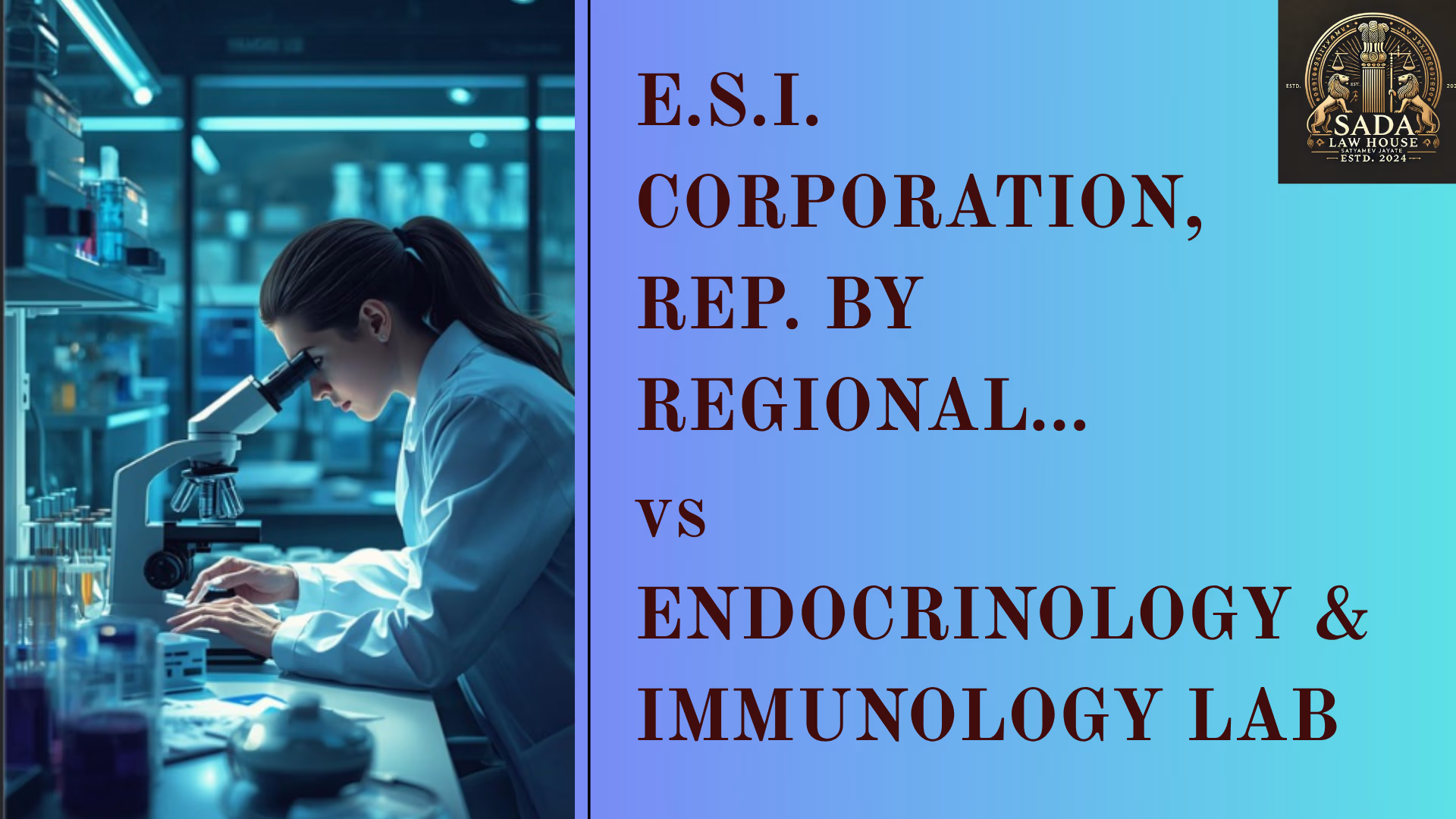Application of the ESI Act to Pathological Labs: Endocrinology and Immunology Lab v. E.S.I. Corporation
- PRABHAT KUMAR BILTORIA
- 14 October, 2025

Introduction
This case concerns the applicability of the Employees’ State Insurance Act, 1948 (ESI Act) to pathological and diagnostic laboratories prior to a specific 2007 notification by the Kerala Government. The Employees’ State Insurance Corporation (ESIC) claimed that the Act applied to the laboratory from an earlier date based on previous notifications. The Supreme Court’s ruling clarified the scope of “shop” and the statutory process required to extend ESI coverage to such establishments.
Background (Facts of the Case)
On April 1, 1999, the respondent’s pathological laboratory was inspected, revealing 19 employees.
The ESIC issued a notice claiming that the establishment was covered under the ESI Act from April 1, 1999.
The respondent filed a complaint under Sections 75 and 77 of the ESI Act challenging the application.
The ESI Court held that the laboratory qualified as a “shop” and was therefore covered under the 1976 notification.
After the review petition was denied, the respondent appealed to the Kerala High Court.
The High Court ruled that the ESI Act would apply only from September 6, 2007, following a specific notification by the Kerala Government extending the Act to medical and diagnostic establishments.
Issue of the Case
Whether a pathological laboratory can be classified as a “shop” under the Employees’ State Insurance Act, 1948, and therefore be subject to ESI coverage before the Kerala Government’s notification dated September 6, 2007.
Judgment
The Supreme Court upheld the Kerala High Court’s decision and dismissed the ESIC’s appeal. The Court made several key observations:
Interpretation of “Factory” and “Shop”
The Court noted that the respondent was not a factory under Section 1(4) of the ESI Act since no manufacturing process was being carried out.
The term “shop” was not defined in the Act, and ESIC’s classification of laboratories as shops was based only on internal circulars—not statutory authority.
1976 Notification
The 1976 notification brought “shops” with 10 or more employees under ESI coverage.
However, the Court clarified that a pathological laboratory does not meet the conventional meaning of a “shop,” which involves the sale and purchase of goods. Diagnostic services do not constitute trading activities.
Circular of 2002
The ESIC relied on an internal circular dated November 22, 2002, expanding coverage to diagnostic centers.
The Court ruled that internal circulars cannot override statutory provisions or notifications issued under Section 1(5) of the ESI Act.
2007 Notification
The Kerala Government, with approval from the Central Government, issued a notification on September 6, 2007, expressly bringing medical, diagnostic, and pathological establishments with 20 or more employees under the ESI Act.
This was the first valid legal notification to include such establishments, and therefore, the Act could not be applied retrospectively.
ESIC’s Inconsistent Stand
The Court criticized ESIC’s contradictory approach—claiming that labs were already covered as “shops” while simultaneously issuing a new notification in 2007 to include them explicitly.
The Court held that such establishments were not legally covered under the ESI Act before the 2007 notification.
Current Status
The Supreme Court’s ruling remains binding precedent, affirming that diagnostic and pathological laboratories fall under the ESI Act only after the September 6, 2007 notification. ESIC cannot demand contributions for any period before that date.
Conclusion
The Supreme Court reaffirmed that welfare legislation like the ESI Act must be implemented strictly according to statutory provisions and official notifications. Internal communications or administrative circulars cannot expand the scope of the law. Thus, pathological laboratories can only be brought within the ambit of the ESI Act from the date of valid notification—September 6, 2007—ensuring legal certainty and procedural fairness.
Case Laws






